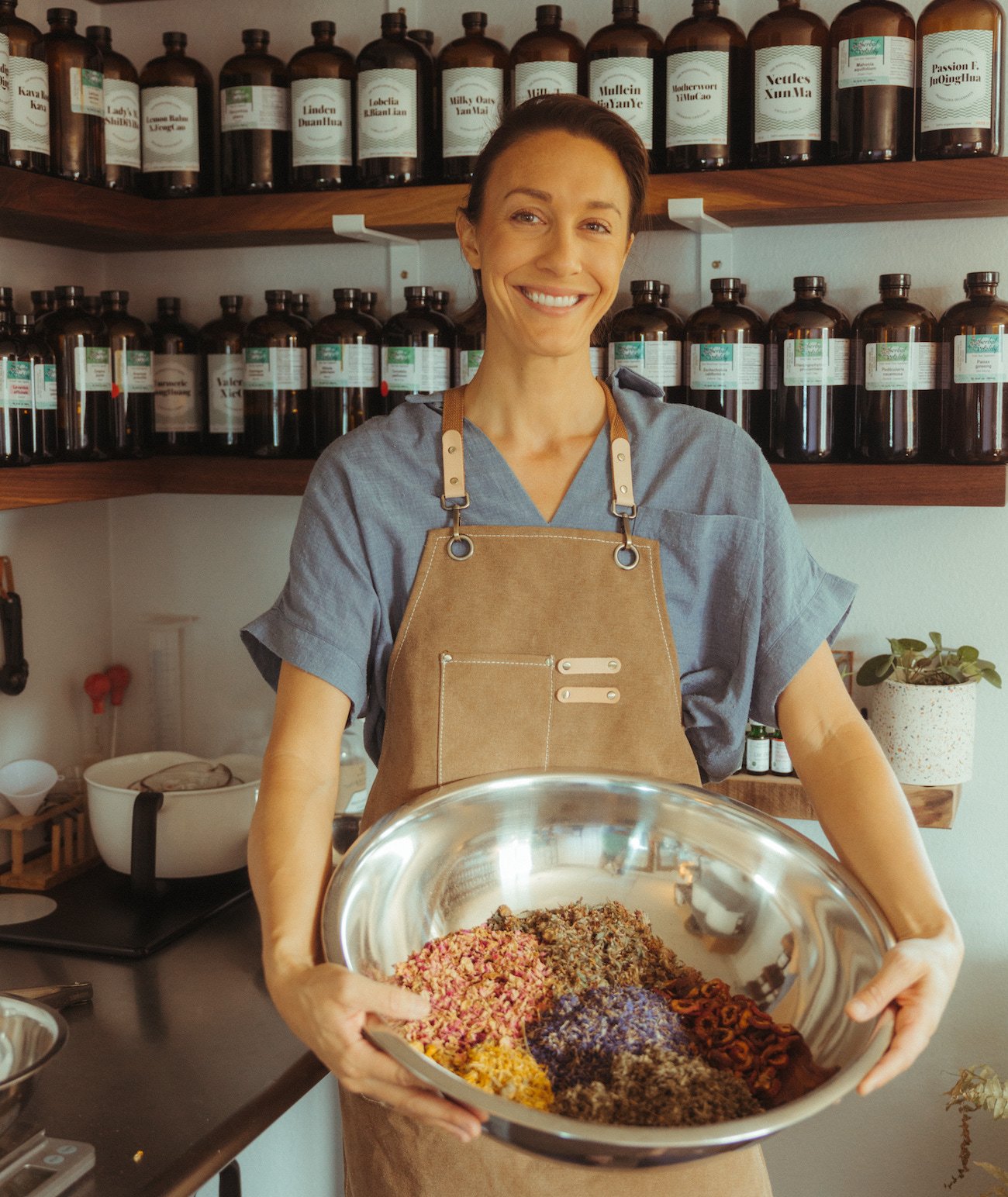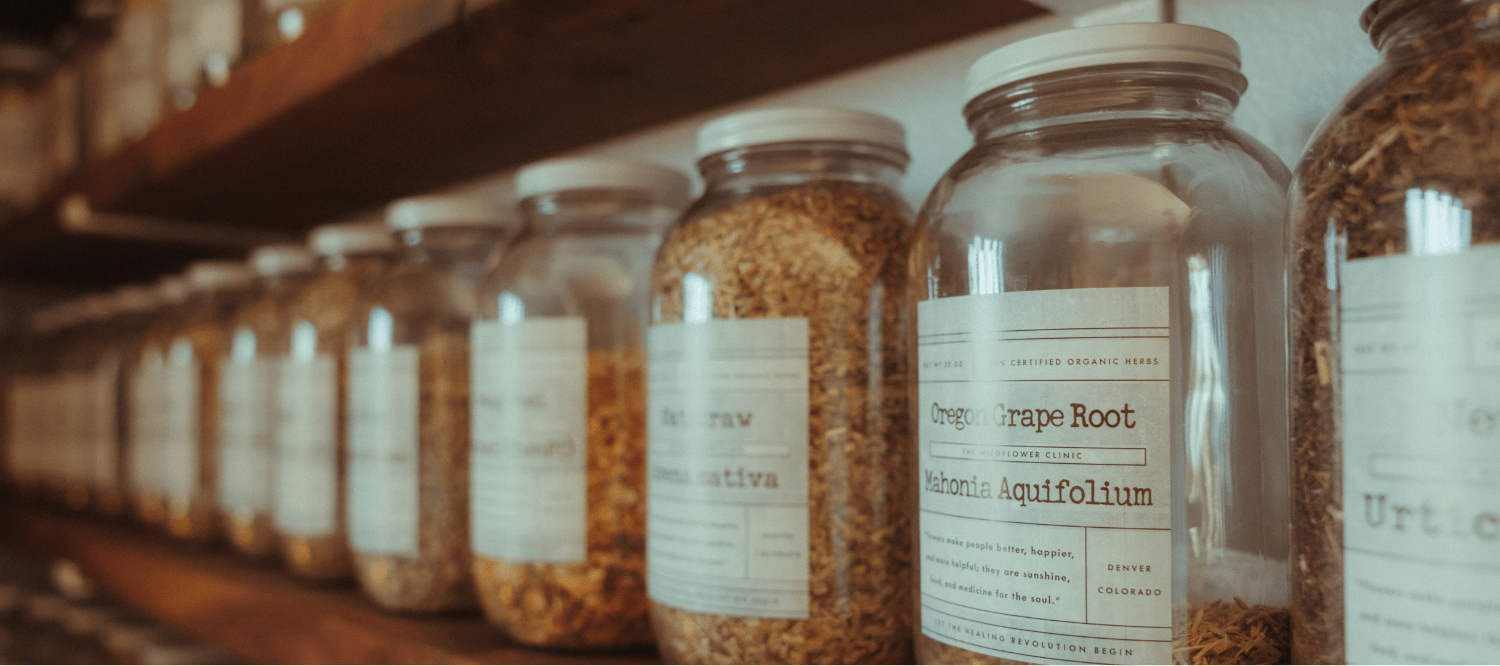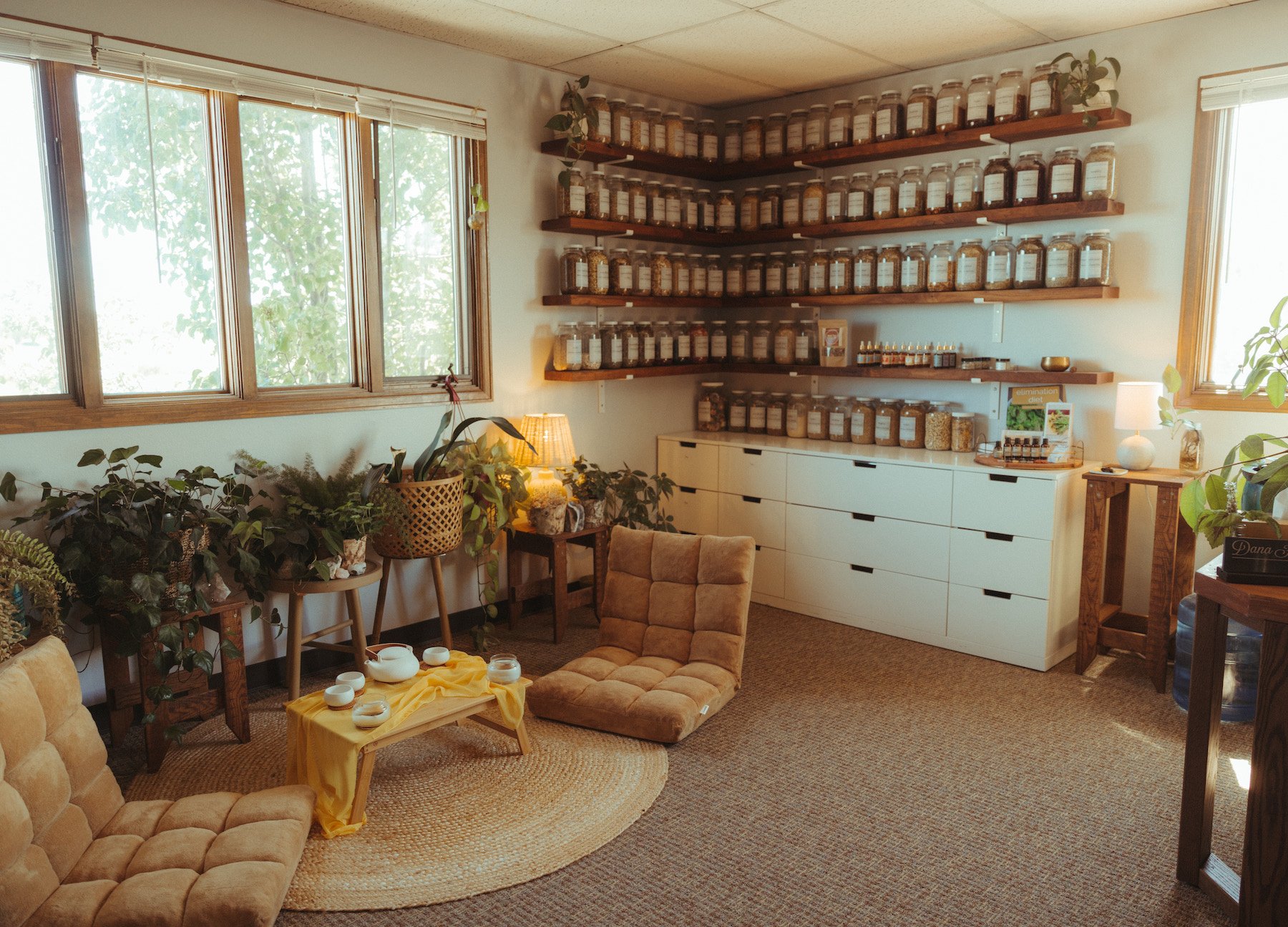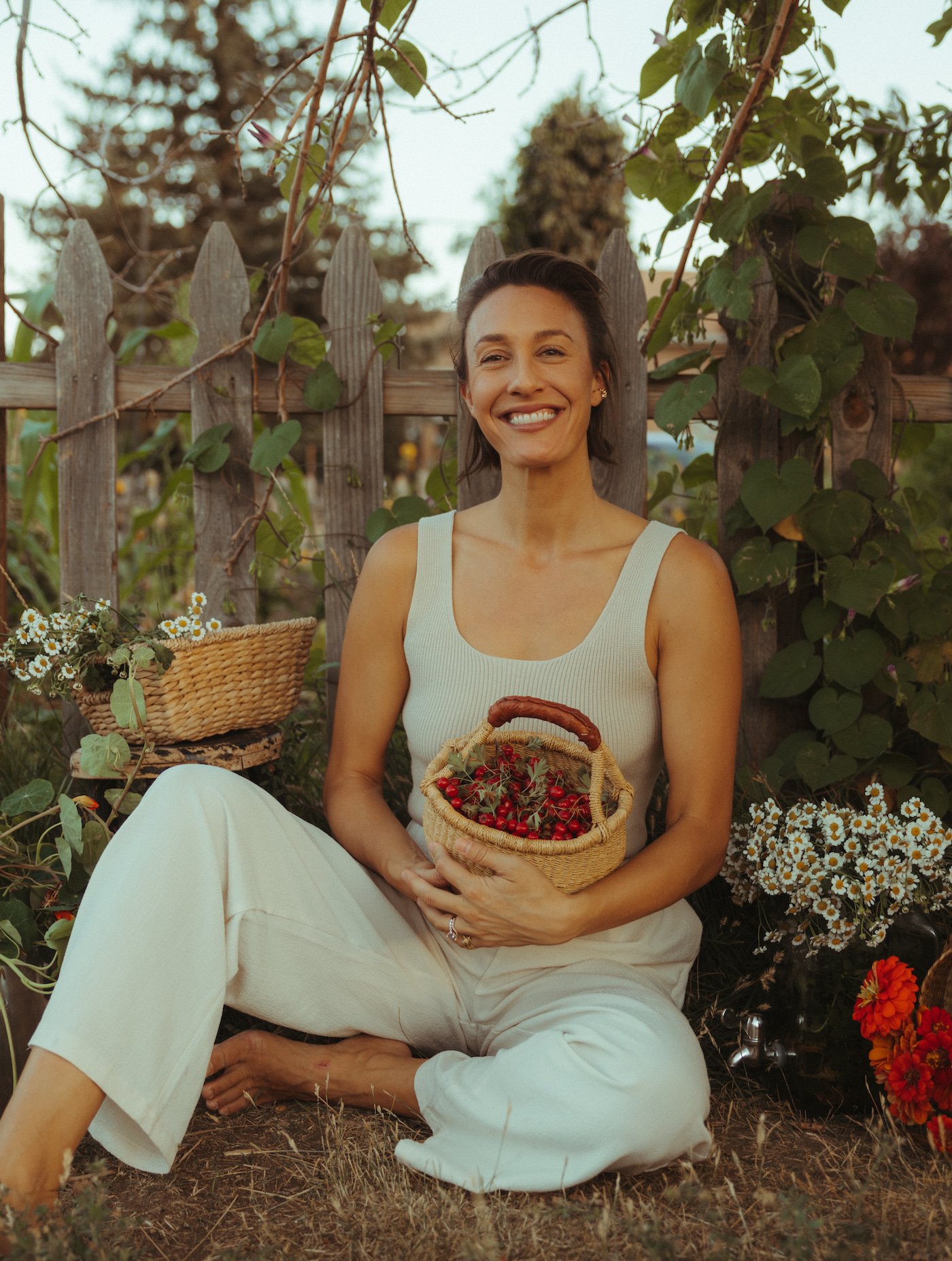What is Integrative Medicine and a Registered Herbalist (RH)?
With the increasing popularity of holistic and alternative medicine, terms like “functional” and “integrative” are often used to describe a private health practice. But what is integrative medicine, exactly, and what does it have to do with herbalism?
Integrative medicine is a model that seeks to identify the underlying trigger(s) of a person’s dis-ease to address the source - rather than the symptoms. Each person’s healing protocol is different and may include a variety of lifestyle and dietary changes along with proven therapies that target the physical, mental, and spiritual aspects of a person’s whole being. Integrative medicine can be employed by a variety of practitioners. At the Wildflower Clinic, our lead practitioner, Dana Hutchinson, is a Traditional Chinese Medicine (TCM) practitioner who’s also one of only 13 Registered Herbalists (RH) in the state of Colorado.
An herbalist is a health practitioner who’s skilled in working with various botanicals to support their client’s health and promote their innate qi (life force). These herbs can be used in place of - or in thoughtful combination with - the client’s existing protocol. Tailored herbal formulas have been shown to reduce systemic inflammation, improve immunity, harmonize digestion, balance hormones, nourish the central nervous system, and enhance blood circulation amongst others.
Herbalists recognize that plants are powerful allies that humans have successfully used for centuries in teas, tinctures, extracts, and other safe, effective preparations to nourish the body and restore health naturally.
When working with an herbalist, you will want to do your due diligence by making sure they’ve undergone the necessary training to safely recommend the best herbs for your unique situation.
Dried Calendula Flower
What is a Registered Herbalist?
In the US, the accreditation of ‘Registered Herbalist’ (RH) is granted by the non-profit, educational herbalism institution, American Herbalists Guild (AHG). This organization recognizes skilled herbalists through an intensive process that ensures the herbalist has a high level of education, expertise, and commitment to their clinical herbalism practice. Since this designation is the only “widely recognized committee-reviewed credential available to herbalists in the US…”(AHG, 2022), the process to receive ‘Registered Herbalist’ status requires diligence and substantial time spent (5 years minimum) as a practitioner in the herbalism field.
To become a registered herbalist with the AHG, you must prove that you have a minimum of 1,200 hours of educational course study. Our lead practitioner, Dana, has blown past that number with 5,000+ hours of TCM and Western clinical education, 12 degrees, and 3 board certified licenses (American Association of Natural Wellness Practitioners, American Association of Drugless Practitioners, and American Herbalists Guild).
In addition to study hours, you must also prove to the AHG Advisory board that you have experience handling clinical cases. With more than 10 years of experience running her own clinic and successfully working with more than 500 clients, Dana is so deeply qualified that she is now also a registered herbal mentor through the AHG for those interested in learning more about the world of herbalism. Melding her wealth of knowledge and warmhearted disposition, Dana takes great care to thoughtfully listen to each client, understand their unique physical, mental, and spiritual state, and craft customized herbal formulas that specifically address their health presentations.
The balance of trust and consideration with clinical expertise makes Dana a unique and extraordinary registered herbalist in the integrative medicine field. (See Dana’s full credentials, here.)
What is Integrative Medicine at the Wildflower Clinic?
While the practices of an RH can vary significantly, one that identifies with integrative medicine takes a holistic approach to healing and will incorporate therapy that addresses the physical body, as well as the mind and spirit. In this integrative community, we feel it’s highly essential for those seeking care to feel heard, understood, and cared for within a safe and welcoming space.
At the Wildflower Clinic, our approach to integrative medicine includes a combination of:
Clinical herbalism
TCM theory and diagnostics (tongue, pulse, nails, and skin assessment)
Extensive health consultations (around 2 hours)
Energy treatments (including reiki, qigong, and flower essence emotional therapy)
Recommendations of suggested functional lab testing, blood panels, and further investigative testing
Custom botanical formulation/supplement recommendations
Educational information/handouts that pertain to a client’s specific health condition(s)
Options for herbal education and 1-on-1 mentorship (for clients who want to further their understanding of this empowering practice)
This effective blend of offerings allows for a path toward progressive healing by addressing underlying foundational triggers in all realms (physical, mental, and spiritual), rather than the surface-level symptoms they may display. These therapies also focus on removing any obstructions that may be affecting the qi, or vital life force, within a client, including food intolerances or allergies.
Work with Us
If you feel called to embark on an integrative health journey with a registered herbalist as your guide, then we encourage you to schedule a 1-on-1 herbalism or fertility consultation with Dana. Together, you will take a close look at your health concerns and goals and begin to make a plan for how you, too, can fully activate your innate life force (qi).
Schedule your 1-ON-1 Herbalism or Fertility Consultation
Becoming a Registered Herbalist
Over the process of completing the ‘Registered Herbalist’ credential via the above criteria, an herbalist will demonstrate a deep understanding and knowledge in areas such as primary clinical practice, botany and plant science, practice management and ethics, nutritional and medical terminology, and therapeutic application methodology. Applicants must also have a profound dedication to herbalism self study, conference attendance, and mentorship under a myriad of herbal practitioners.
If you find you’d like to embark on a path toward becoming a Registered Herbalist (RH), you can visit the American Herbalists Guild website to learn more about the process, or contact Dana, a registered herbal mentor for the AHG, to see if a 1-on-1 herbalism mentorship might be a good fit for you on your journey to RH certification.
Learn more about our 1-on-1 mentorship program.
Sources
American Herbalists Guild (2022). American Herbalists Guild. Retrieved from: https://www.americanherbalistsguild.com/
Gannotta R, Malik S, Chan AY, Urgun K, Hsu F, Vadera S. Integrative Medicine as a Vital Component of Patient Care. Cureus. 2018 Aug 4;10(8):e3098. doi: 10.7759/cureus.3098. PMID: 30338174; PMCID: PMC6173273.






